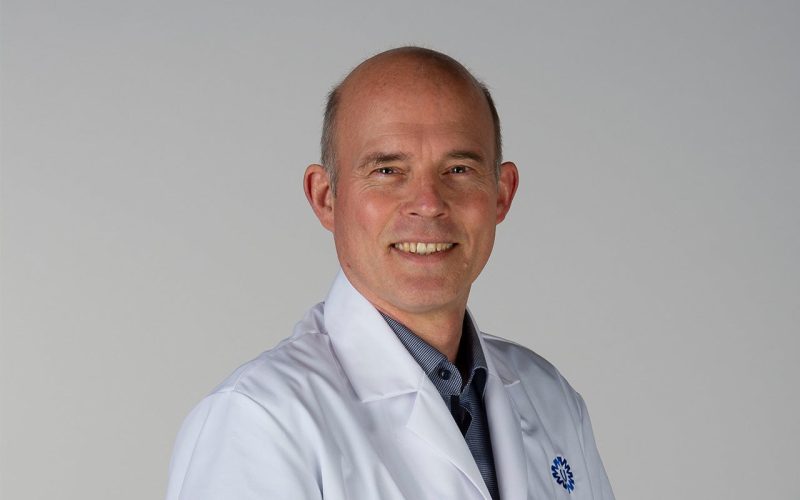Professor Lodewijk van Rhijn made the switch from MaastrichtUMC+ to UMC Utrecht last year, and has been appointed professor of Orthopedics since 15 July. In his assignment, a lot of attention is paid to health care organization (e.g. Integraal Zorg Akkoord), regenerative medicine and biofabrication; important themes within UMC Utrecht.
Lodewijk van Rhijn completed his training as an orthopedic surgeon in 1996 at the OLVG in Amsterdam and the WKZ in Utrecht. He then worked for a long time at MaastrichtUMC+ (1998-2022). During this time he also obtained his PhD on the fused spine (scoliosis), then he became professor of Orthopedic Biotechnology and later head of department and professor of Orthopedics. In collaboration with the region, he set up a movement center to organize care around movement within and outside the hospital in a contemporary way. He also held numerous board positions within the MUMC+. In doing so, Van Rhijn not only proved himself to be a good researcher, but also a leader and connector.
This role as a connector comes in handy, because Van Rhijn will bring together and develop the field of musculoskeletal care in the Orthopedics department. He will not only do this internally, but also with regional, national and international partners. The UMC Utrecht distinguishes itself in complex and acute spinal surgery for adults and children, complex and acute pediatric orthopedics, complex prosthetics, revisions, position abnormalities of the leg and cartilage problems in joints (arthrosis).
Van Rhijn: “Disorders of the musculoskeletal system are already the most common type of complaint and this number will only increase. They have a major impact on the quality of life of patients and high societal costs. Osteoarthritis, for example, is not a wear and tear of the joint, but a chronic joint disease for which we urgently need to develop early treatments. We also have to organize care in such a way that the best exercise care is available and accessible to all patients.”
The Department of Orthopedics pays a lot of attention to education and research, especially in the field of regenerative medicine and biofabrication. This research is about, for example, making complex personalized implants, 3D bioprinting of cartilage and other tissues. Van Rhijn will therefore also be working on this a lot. “Interdisciplinary research and training, (further) training and lifelong learning are the best ways to gather knowledge and transfer it to all (para)medics as quickly as possible,” says Van Rhijn.
